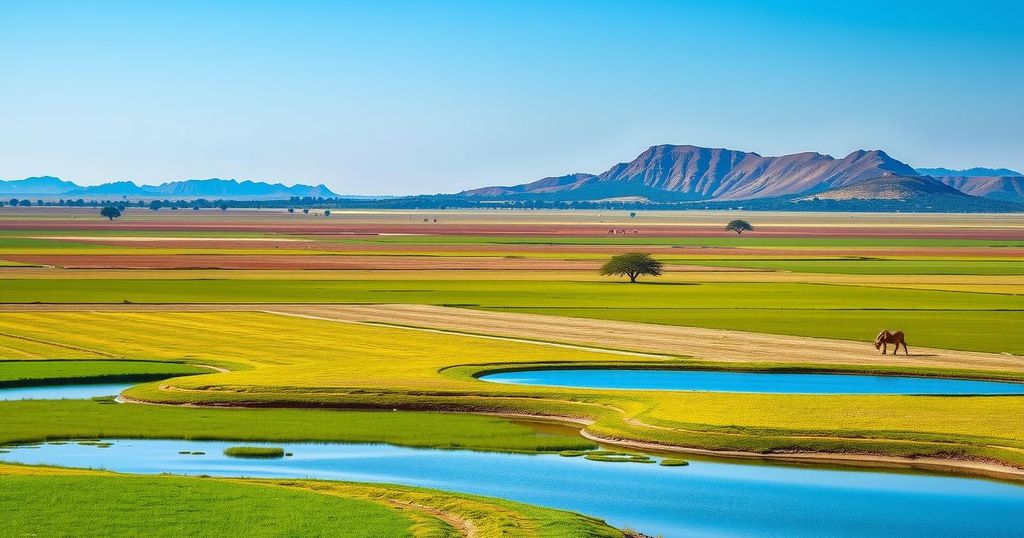Tensions rise again in South Sudan between President Salva Kiir and Vice President Riek Machar, threatening the 2018 peace deal. Political arrests have escalated hostilities following violence in Upper Nile state, with analysts warning of potential conflict resurgence. The international community calls for immediate cessation of violence and political dialogue to restore stability.
Tensions are mounting once more between President Salva Kiir and Vice President Riek Machar in South Sudan, following high-level arrests and dismissals under Kiir’s orders. South Sudan’s army has surrounded Machar’s residence in Juba, suggesting an escalating conflict that threatens the 2018 peace agreement, which aimed to stabilize the nation after the civil war that began in 2013. As unrest continues, analysts express concern regarding the future of peace in the region.
The conflict in South Sudan has deep historical roots, originating shortly after its independence from Sudan in 2011. As divisions within the ruling Sudan People’s Liberation Movement (SPLM) emerged, political and ethnic tensions intensified, particularly between the Dinka and Nuer groups. The civil war commenced in 2013 after Kiir dismissed Machar, leading to the establishment of Machar’s rebel movement, the SPLM/IO.
The 2018 Revitalised Agreement on Resolution of the Conflict in South Sudan was a response to years of violence that resulted in significant loss of life and displacement. Despite being facilitated by the Intergovernmental Authority on Development (IGAD), the agreement has seen minimal implementation of proposed reforms such as army unification and disarmament, with sporadic violence persisting.
Renewed tensions recently escalated following violence in Upper Nile state, triggered by rumors of a government disarmament plan for local armed groups. The South Sudanese army has clashed with a youth militia, resulting in casualties and further exacerbation of the situation. Information Minister Michael Makuei Lueth attributed the violence to actions initiated by the White Army, a Nuer militia.
High-profile arrests linked to Machar’s faction have increased tensions further. General Gabriel Duop Lam and Petroleum Minister Puot Kang Chol were among those arrested, with Machar effectively placed under house arrest. These developments have raised serious concerns regarding the viability of the existing peace agreement, according to SPLM/IO spokesman Pal Mai Deng.
The international community, including Kenyan President William Ruto, has expressed alarm over the escalating violence. Ruto has urged both leaders to engage in dialogue to preserve peace, while several embassies jointly condemned the hostilities in Upper Nile and called for an immediate cessation of violence.
Political observers fear that ongoing infighting could deteriorate the situation further and hinder vital processes, including the formation of a permanent constitution and the scheduling of elections. Pro-democracy activist Mohammed Akot criticized both Kiir and Machar’s parties for lacking political will to further peace efforts, highlighting a risk of renewed conflict if disputes persist. The humanitarian crisis also looms large, as the World Food Programme warns of substantial funding shortfalls exacerbating food shortages affecting millions in the country.
In summary, the current tensions between President Salva Kiir and Vice President Riek Machar pose significant risks to South Sudan’s fragile peace established in 2018. Historical animosities, recent violence in Upper Nile, and political maneuvers are endangering the progress made towards stability. The response from the international community has highlighted the urgency for dialogue and action to prevent further escalation and humanitarian crises in the region.
Original Source: www.aljazeera.com




